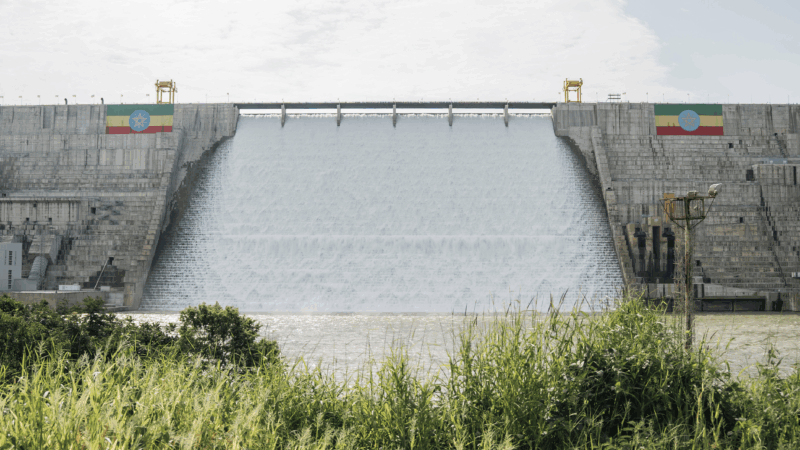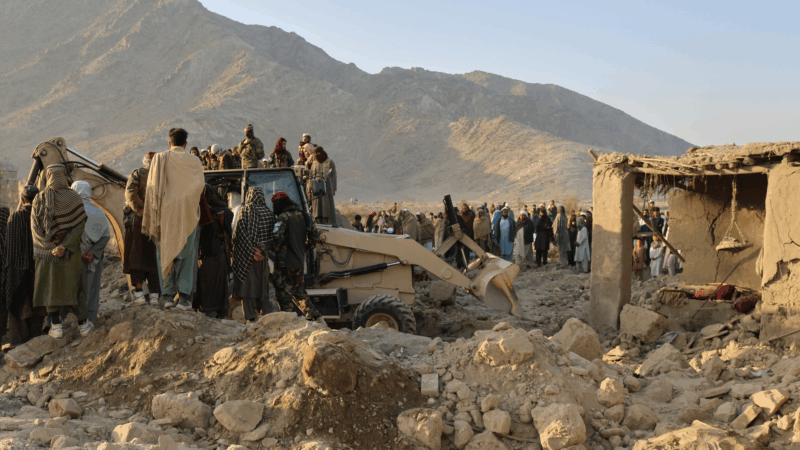Ethiopia inaugurates Africa’s biggest dam amid regional tensions
JOHANNESBURG, South Africa — With great fanfare Ethiopia inaugurated its controversial mega-dam on the Blue Nile on Tuesday – the biggest hydroelectric dam in Africa but one that’s divided the region and even caught the attention of President Trump.
Fireworks lit up the sky the night before the Grand Ethiopian Renaissance Dam (GERD) was officially opened, and dancers dressed as engineers in hardhats performed at the colorful daytime ceremony attended by African dignitaries.
For Ethiopia the unveiling of the 74-billion cubic meter dam, which has been 14 years in the making and cost $5 billion, was the culmination of a dream and proved the East African nation the winner in a bitter diplomatic battle over its construction.
The 476-foot high, 1.2 mile-long dam will more than double Ethiopia’s electricity capacity to 5,000 megawatts. Almost half of Ethiopia’s 130 million people lack access to electricity and even the capital Addis Ababa experiences regular blackouts.
Prime Minister Abiy Ahmed hopes the dam will transform the country’s economy and plans to export the surplus power elsewhere in the region, like to Kenya.”The Renaissance Dam is not a threat, but a shared opportunity,” Abiy said in July.
Neighboring Egypt, however, views it as nothing less than a disaster. The dam is situated on the Blue Nile, a tributary of the Nile, at Ethiopia’s border with another neighbor — Sudan.
Egypt worries the dam could restrict the flow of water into the desert country, leading to shortages as it depends on the Nile for 97 percent of its water.
Egypt’s President Abdel Fattah al-Sisi has called the dam “an existential threat” and said last month that “”Whoever thinks Egypt will turn a blind eye to its water rights is mistaken.”

As for Sudan, which is in the midst of a bloody civil war, it’s “between a rock and a hard place,” says Moses Chrispus Okello, an analyst with the South Africa-based Institute for Security Studies think tank.
“Sudan suffers annual floods and has a shortage of electricity, both problems that the Ethiopian Renaissance Dam is able to address for Khartoum,” he said. “On the other hand Khartoum probably replies on Egypt more than any other country and therefore there’s a diplomatic dimension to this dilemma.”
Egypt lobbied for the dam to be denied international financing, so Ethiopia paid for the project itself, though its central bank and public bond sales.
Attempts at mediation, including by President Trump in 2019 during his first term, have all failed. Trump caused ire in Ethiopia at the time by suggesting Egypt wouldn’t stop at anything to get rid of the dam. After failing to broker a deal, he halted aid to Ethiopia and predicted Egypt would end up “blowing up that dam.”
Okello believes Trump got involved in the dispute for two reasons, firstly because he was jealous that Ethiopia’s Abiy had just won the Nobel Peace Prize, which he’s always wanted, and secondly because Egypt is a major U.S. ally in the Middle East.
In his second term Trump again ruffled feathers by claiming recently that the United States “stupidly” paid for the building of the dam, prompting an Ethiopian official at the Gerd Coordination Office to respond that “no foreign aid” was used in its construction.
Pakistan claims to have killed at least 70 militants in strikes along Afghan border
Pakistan's military killed at least 70 militants in strikes along the border with Afghanistan early Sunday, the deputy interior minister said.
Team USA faces tough Canadian squad in Olympic gold medal hockey game
In the first Olympics with stars of the NHL competing in over a decade, a talent-packed Team USA faces a tough test against Canada.
PHOTOS: Your car has a lot to say about who you are
Photographer Martin Roemer visited 22 countries — from the U.S. to Senegal to India — to show how our identities are connected to our mode of transportation.
Sunday Puzzle: TransformeR
NPR's Ayesha Rascoe plays the puzzle with listener Joan Suits and Weekend Edition Puzzlemaster Will Shortz.
Looking for life purpose? Start with building social ties
Research shows that having a sense of purpose can lower stress levels and boost our mental health. Finding meaning may not have to be an ambitious project.
Danish military evacuates US submariner who needed urgent medical care off Greenland
Denmark's military says its arctic command forces evacuated a crew member of a U.S. submarine off the coast of Greenland for urgent medical treatment.






